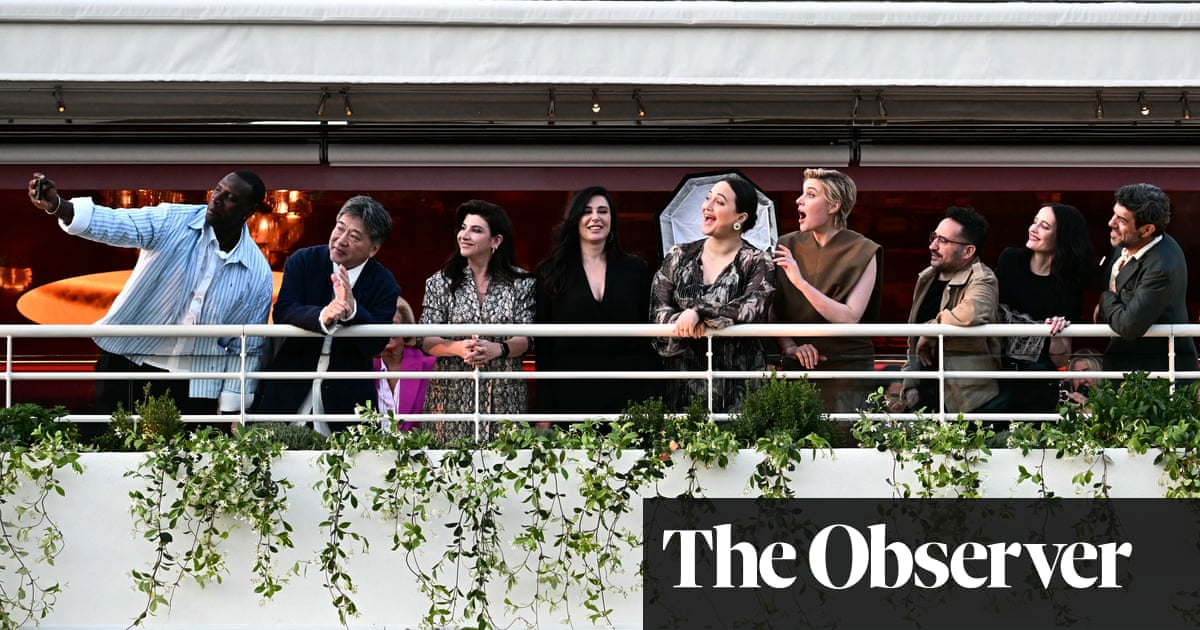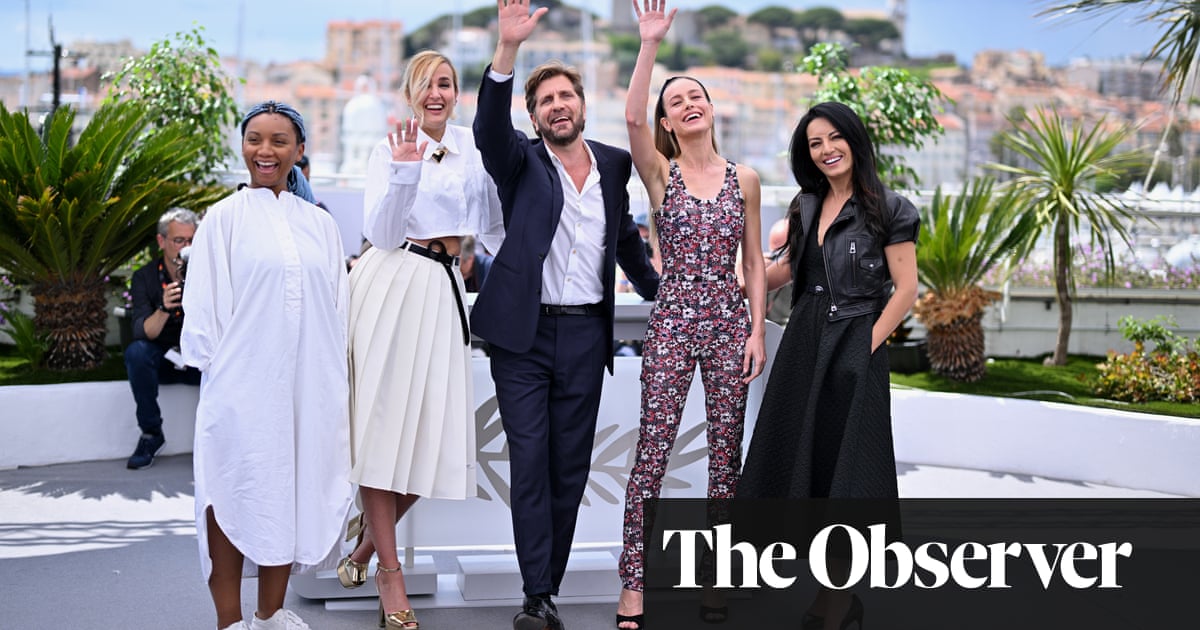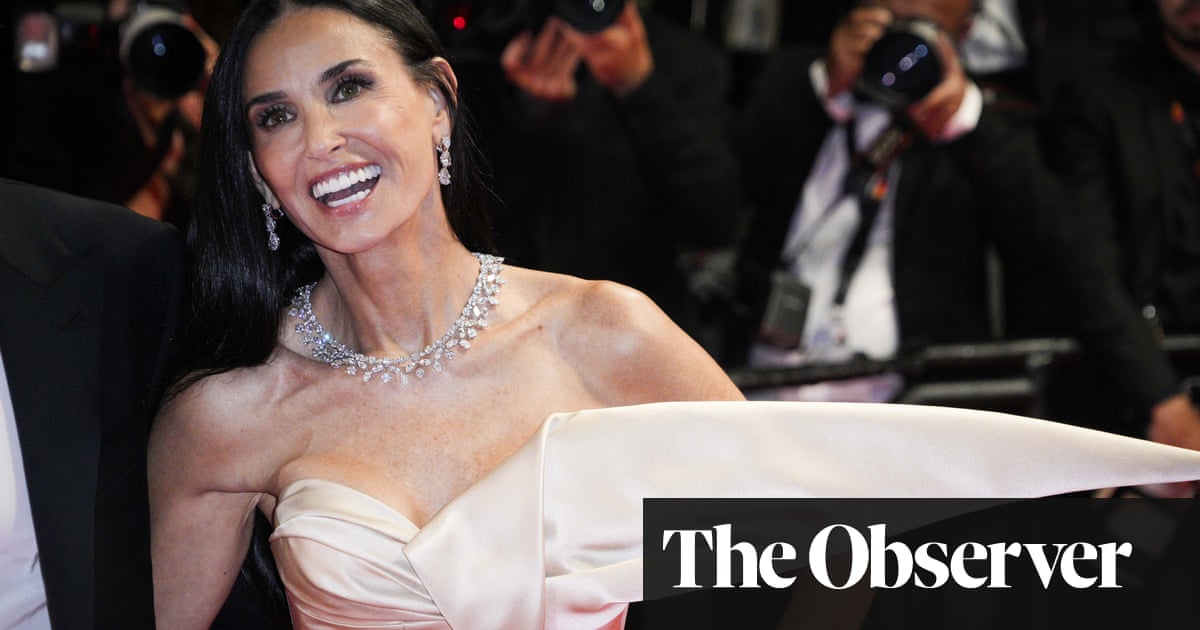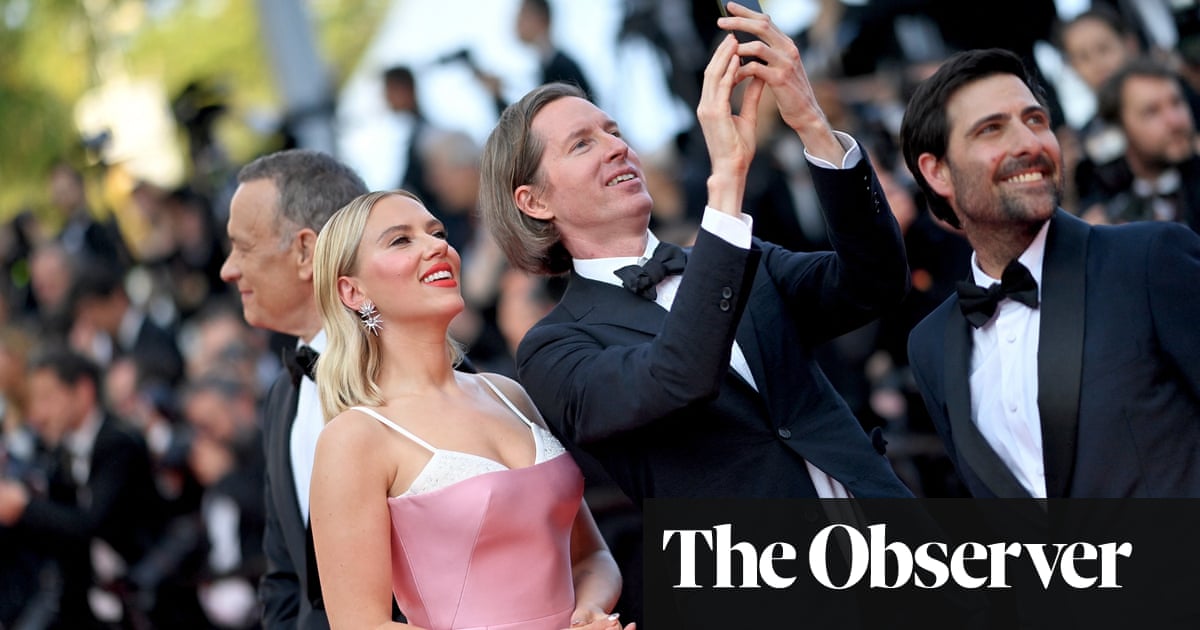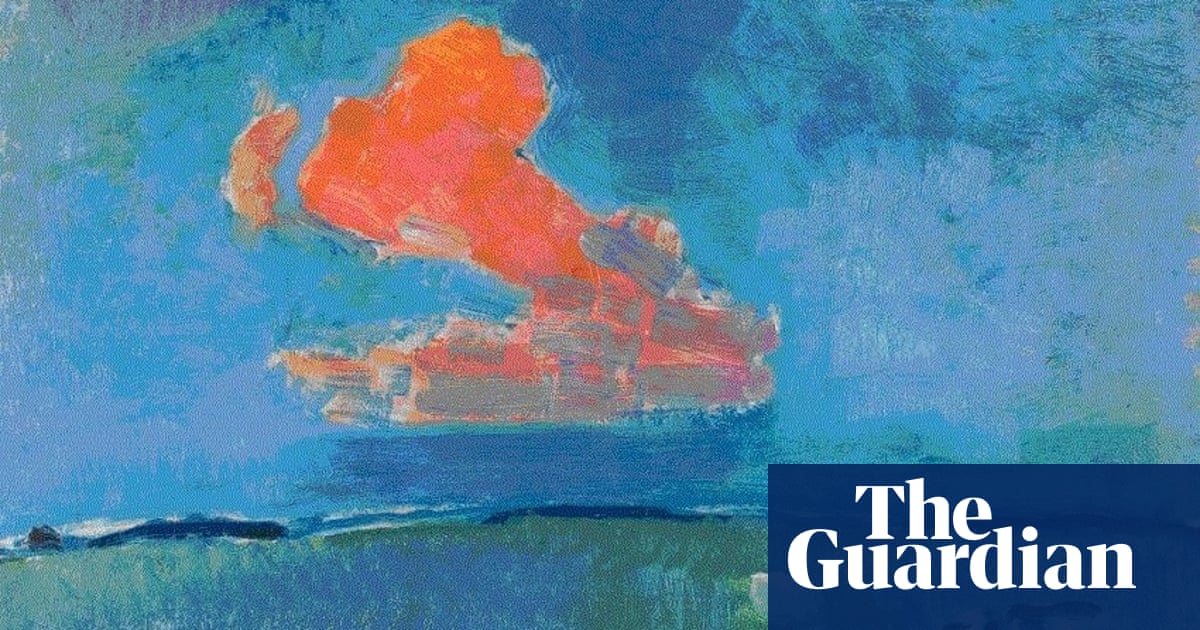
Periodically I’ll have an anxiety dream about Cannes. One night I’ll dream that I’ve somehow brought the wrong pass, another that I’m triple-booked, running late and lost inside the Palais. All of which is perfectly understandable. The festival is frenetic and confounding. It worms into your subconscious and conjures bizarre visions. In this one, for instance, I’m surrounded by hundreds of people in masks and must queue at a pavilion and spit into a tube. At some stage I’m guessing I’ll be shaken awake.
This is the 74th Cannes film festival, the 15th I’ve attended and the runaway winner of the Palme d’Or for oddness, staged in defiance of the global pandemic with everyone waving their Covid test results to get in. Thierry Frémaux, the event’s artistic director, likens its very presence to a miracle – although obviously he’s biased and his review’s a mite premature. If this works it’s a triumph, and if it stumbles we’re in hell, but that’s the nature of the place; part of the festival’s DNA. One way or another, Cannes has never gone in for half measures. However wild you dream it, the reality’s always wilder.
Down on the red carpet it’s barmy business as usual. The press photographers line up at the cordons, bellowing for attention, while the fans tug down their masks with one hand and snap selfies with the other. Inside, on the stage, Spike Lee takes his place alongside Pedro Almodóvar, Jodie Foster and Bong Joon-ho to officially open the proceedings. Lee, the jury’s first black president, is wearing a Louis Vuitton suit so shockingly pink it risks blowing out the retinas. He looks like a merry old Satan presiding over a church of the damned.
At least this most freakish of Cannes gets the opening film it deserves. Leos Carax, the wayward imp of French cinema, last came to town with 2012’s freestyle Holy Motors, in which a bunch of white limousines gathered at night for a chat. He swaggers back with Annette, an outrageous operetta about romance, death and madness, with music by Sparks and a creepy articulated doll in the title role. Adam Driver and Marion Cotillard play the tale’s star-crossed lovers (he a simian standup, she an angelic soprano). They sing of their love around a haunted nocturnal LA, barely pausing for breath even when riding their motorbike or climaxing in bed or battling a storm that will pitch one of them overboard.
Annette is often in danger of going overboard, too. It’s windswept and wanton, a thing of big gestures and kamikaze daring; almost inviting disaster, an end to its anguish. The applause when it finished was grudging at best. A man rose up from his seat to shout a complaint at the screen. But I liked Carax’s crazed quasi-mashup of Pinocchio and A Star Is Born. Only he could have made it. No substitute would come close.
If nothing else, Annette provided a more glamorous opening than Cannes’ unofficial launch at the Covid site next door, where the guests must line up to have their saliva tested in advance. “Only the liquid is good,” a medic sternly informs us. “The froth doesn’t count.” And so we stand in a booth and spit into our tubes until we each produce the required level of liquid. Everyone, it seems, is piled in together. The film-makers at work on their latest production. The critics filing their literally drooling reviews. It takes quite a while, by which time we’re all parched. They say the human body is 60% water. But that’s before it has emerged from the booth at the Cannes testing site.
The 2020 festival was cancelled at the last minute, which means that this edition is rattling through a two-year backlog of movies, flooding the programme with so many titles that the official website keeps buffering and one risks spending longer booking a seat for Arthur Harari’s Onoda: 10,000 Nights in the Jungle (about a Japanese soldier who won’t stop fighting the war) than sitting down and actually watching the damn thing. In the meantime it seems that the landscape has shifted. The familiar lions of British cinema (Mike Leigh, Ken Loach) are giving the competition a miss, ceding the schedule to homegrown produce such as Clio Barnard’s Ali and Ava and Andrea Arnold’s crusading farming documentary Cow. Pick of the crop so far is Joanna Hogg’s precise, piercing The Souvenir Part II, the next chapter in her autobiographical account of an ill-starred love affair. On the evidence of this year, the future is female – and it is upon us already.
French cinema, for its part, maintains a more even keel. First off the rank at the directors’ fortnight is Between Two Worlds, which casts a surefooted Juliette Binoche as Marianne, a bourgeois writer gone undercover to report on zero-hours cleaners in a moribund port town. Emmanuel Carrère’s drama is alive to the complexities of its central conceit, navigating themes of liberal condescension and poverty tourism, conscious of the possibility that Marianne, in her way, is as exploitative as the system she has set out to expose.
Equally impressive is Everything Went Fine, François Ozon’s Dignitas drama, which is stately and stealthy and showcases a majestic performance by Sophie Marceau as the steadfast daughter of a well-heeled family, lumbered with carrying out her dad’s dying wish. It seemed only a few minutes ago that Ozon was framing footloose, lusty youngsters in the likes of Sitcom and Water Drops on Burning Rocks. Now he’s making films about pills, wills and bedpans; the business of dying; the last farewell to the kids. Pass the bottle, drink deep. It’s later than we think.
The skies have darkened when the guests mount the stairs for the 10.30pm screening of Todd Haynes’s documentary The Velvet Underground. It’s dark on screen too: lots of moody black-and-white Super-8 interspersed with handheld footage of colourful mid-1960s Manhattan. Lou Reed and John Cale were the misfit kids who combined beat poetry with classical viola and came away with a electrifying new sound. But The Velvet Underground is not just a biography of the era’s most radical band. It paints a vivid portrait of the pre-gentrified New York of Andy Warhol’s Factory and Max’s Kansas City, a world which feels as distant from us now as ancient Rome.
Here at Cannes the old-timers love to recall the decadent days of the past, when social distancing was a joke, when you could pour yourself between the bars and the screenings and discuss obscure arthouse pictures aboard a billionaire’s yacht. The dream this year is different: more nervous, less fun. There are fewer people, more security checks and a conspicuous absence of the all-night party scene. But the spirit of adventure still survives in the cracks and visitors fall on the films with the same ardour of old. These caffeine-fuelled pilgrims are hunting the next movie masterpiece, a firework from left field. They come careening out of the testing site hungering for fresh produce, something substantial, essential, because the froth doesn’t count.
Coming attractions at Cannes
The French Dispatch
Keep the inside spread free for the new Wes Anderson feature, packed with pin-drop literate prose, illustrated throughout with impeccably composed tableaux. The French Dispatch is his Valentine to the heyday of print media, doffing its cap to the New Yorker with its focus on the foreign bureau of a refined midwestern magazine. Co-bylines to regular stars Bill Murray, Tilda Swinton, Edward Norton and Owen Wilson.
Titane
The buzz is already building around the latest delicacy from French director Julia Ducournau, creator of the acclaimed rites-of-passage horror flick Raw. The plot’s off the menu; Ducournau likes to surprise us. But should this Cannes competition require some red meat for the senses, Titane (reputedly about the ominous reappearance of a missing child) appears to be the most likely prime cut.
Nitram
The 1996 Port Arthur massacre remains one of the darkest chapters of recent Australian history, resulting in the death of 35 people and prompting immediate changes to the country’s gun laws. Now director Justin Kurzel attempts to shed fresh light on the tragedy, aided by a cast that includes Judy Davis, Anthony LaPaglia and Caleb Landry Jones.
Red Rocket
Writer-director Sean Baker was the breakout star of the directors’ fortnight section with his last film, The Florida Project. His reward: a ticket to the main competition with this rollicking comedy-drama, shot in the teeth of the Covid pandemic and spotlighting the travails of a spent porn hustler who crash-lands back on his old Texas home town.





